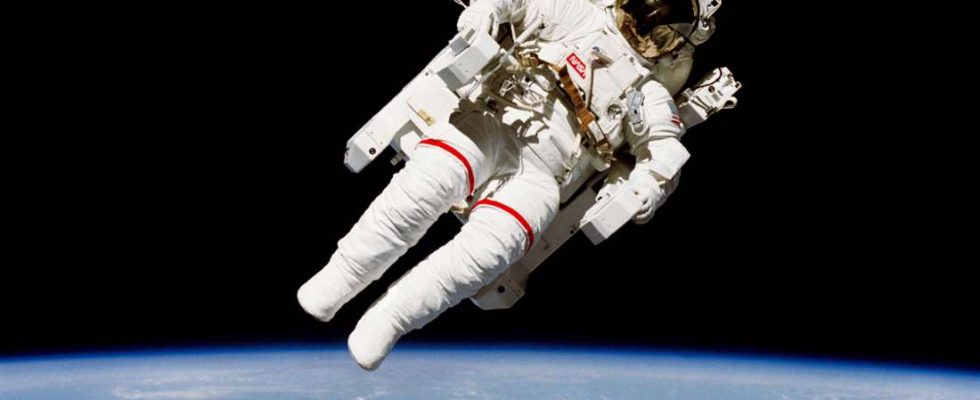Press
Astronauts in space don’t just struggle with weightlessness. A new study brings surprising findings.
Suffering – The weightlessness of space is fascinating. Astronauts appear to move effortlessly in weightlessness, floating, rolling or standing upside down. But the human body has to adapt enormously in the absence of earthly gravity. The space sickness that many astronauts complain about is just one example of the challenges of weightlessness.
With a view to future missions to the Moon or Mars, stays in space are likely to become longer. A new study is extremely inappropriate. It shows that astronauts who did not have headaches on Earth can develop migraines and tension headaches during longer space missions. WPJ van Oosterhout, a neurologist from Leiden University Medical Center in the Netherlands, explains: “The changes in gravity caused by spaceflight affect the function of many parts of the body, including the brain.”
Many people get headaches in weightlessness
Van Oosterhout led a study on headaches in weightlessness in the specialist journal Neurology published became. He explains in one noticewhy the body has difficulty in weightlessness: “The vestibular system, which affects balance and posture, must adapt to the conflict between the signals it expects and the actual signals it receives in the absence of normal gravity, “This could lead to motion sickness in the first week of weightlessness, with headaches being the most common symptoms.
The study included 24 astronauts from the European space agency Esa and its American and Japanese counterparts Nasa and Jaxa. The participants spent up to 26 weeks on board the International Space Station (ISS) between November 2011 and June 2018. Before their stay in weightlessness, all study participants filled out a headache questionnaire. During the first seven days in space, symptoms were queried daily, then only weekly thereafter.
Almost all astronauts have headaches
Nine of the astronauts had never had a headache before their stay on board the space station, and three had had a headache at least once in the past year that interfered with their daily activities. None of the participants had previously suffered from migraines. During the 3,596 days that the 24 astronauts spent in space, 22 of them reported a total of 378 cases of headaches. According to van Oosterhout’s research team, 92 percent of the participants reported headaches in weightlessness – on Earth it was only 38 percent.
Most of the headaches reported were tension headaches, according to the study, with only ten percent identified as migraines. The headaches were more intense and more like a migraine during the first week of weightlessness. Even after the first week in space, in which 21 participants reported headaches 51 times, the astronauts continued to suffer from headaches. However, in the three months after returning to Earth, no one reported any more headaches.
“This is a big problem for many astronauts”
Van Oosterhout states: “Our study shows that headaches also occur later in space and could be related to increased pressure in the skull.” He emphasizes the need for further studies: “Further research is needed to decipher the causes of headaches in space and explore how these findings may lead to insights into headaches on Earth.” In addition, the neurologist calls for the development of effective therapies to combat headaches in space. “For many astronauts, this represents a major problem during space flight.” (tab)
The editor wrote this article and then used an AI language model for optimization at her own discretion. All information has been carefully checked. Find out more about our AI principles here.

